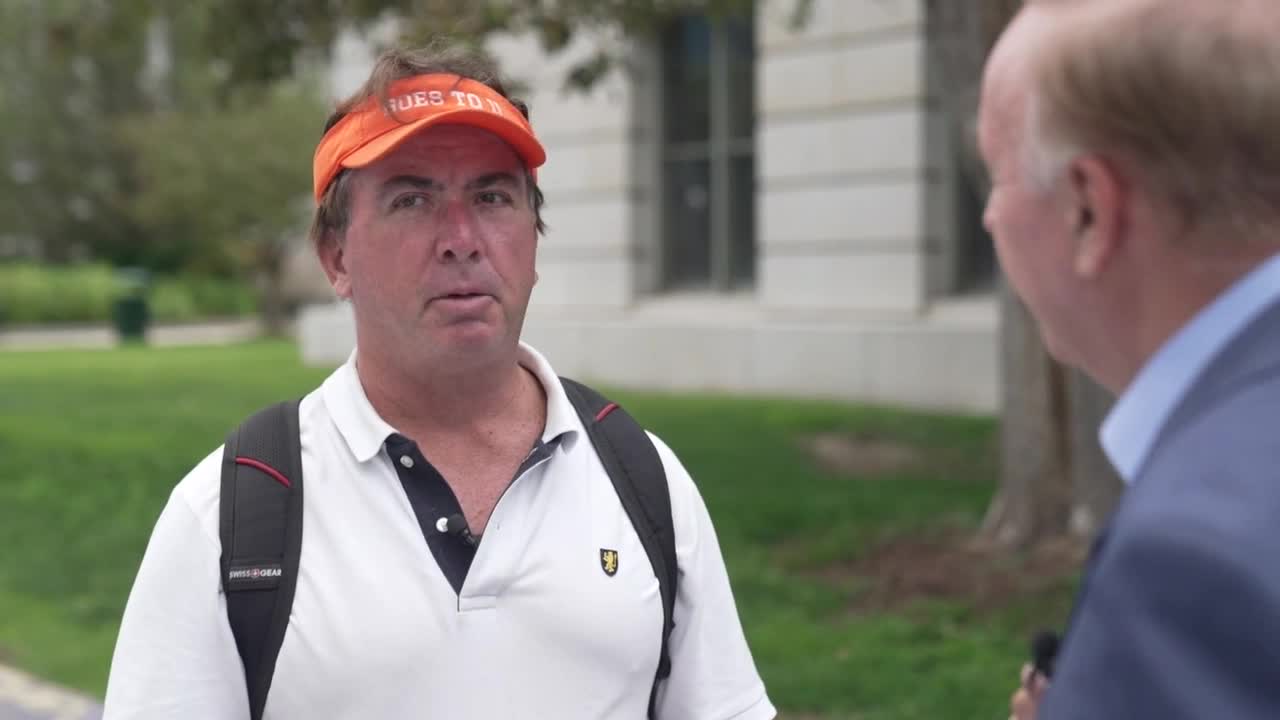DENVER — Denver7 Investigates sat down with Mayor Mike Johnston on Thursday in advance of next week’s State of the City address.
But Denver7 also wanted to bring viewer concerns to the mayor and spoke to three residents, asking them to grade Johnston’s performance and ask him one question that’s on their mind.
- Denver7 Chief Investigator Tony Kovaleski asked Johnston about his accomplishments, his failures and what comes next as the mayor reflects on two years in office. Read that story here.

About Denver's bike lanes...

Scott, a 29-year Denver resident, said he’d give Johnston an A-minus and his question pertained to the city’s bike lanes. The answers are from Johnston during Thursday’s interview.
Q: What are we going to do with these bike lanes? That has taken up a lot of space and crowded our streets. Since I've seen them put them in, I've seen four people riding in the bike lanes. I believe it's a waste.
A: "I think two things are true: One is we want to have safe, protected bike lanes where anyone from a 5-year-old to an 80-year-old can be able to ride to and from downtown or work or a park. I also think I described it as I think that a network of bike lanes should look more like a subway map and not like a bus map.If you look at the light rail, there are a couple of main arteries that run east-west, and a couple of main arteries that run north-south. I think if we did that, then folks could go to those very safe, protected bike lanes and use them.
I don't think we need them on 10 streets, going east-west, all between 10th and 20th.I think that's a place where you can consolidate them and make them all safer. We'd rather have a smaller number of much safer bike lanes than a very large number of partially safe bike lanes. And we do want to balance the fact that we want more people to use bikes. And there are a lot of us in the city who still have to use cars, and we don't want to make it harder for you to use a car. We want to make it easier for you to use a bike, and we think there's a way to do both by both protecting parking spots, getting a smaller number of various safe lanes, and then making sure that we can still get people that want access to businesses that have spaces in front."
Johnston added that the city has paused expansions for a lot of new bike lanes, but would like to accelerate a smaller number of lanes for higher safety protections.

On the conflict over immigration

Marty has lived in Denver for 53 years and said he’d give Johnston a B-minus for his first two years in office, noting some troubles with immigration and conflict with the Trump administration.
Q: I think it would go on to the immigration and the sanctuary city policy. … How do we get to a point where we're not in constant conflict with the government and the Trump administration. And how do we get to a point where there's middle ground?
A: "I agree with Marty on that. I would love to avoid having any more battles with the federal government on these questions. And I would actually say, I think Denver is at that stage now where we don't have a crisis. We don't have folks sleeping on the streets. We don't have budgets that are overwhelmed. We think we've managed this. And so we think the crisis is over. We think the fight can be over. I think there are some times where the president wants to pick fights for other reasons, but our goal is we want to focus on the immediate challenges we have in front of us. That's more about economic recovery around filling vacant office space, around affordable housing, around public safety.So I'm going to stay focused on that. I'm with Marty, and we hope the federal government focuses on their part of the job."

On resources for the unhoused population

Anastasia is new to Denver, having just moved two weeks ago. She said the city has exceeded her expectations and would give Johnston a B-plus.
Q: My question would be how can the homeless help themselves? Because we have seen resources where there is help available when we do help them, like Mutual Aid Mondays, which is just right on that corner right there. But how can the homeless population really help themselves right now?
A: "I think her point is right. We both want to help get people that are homeless access to services. And we do think they have some of their own accountability for using those services and taking advantage of them. And so we're really focused now on getting people into transitional housing, but then making sure they're doing the work as soon as we get them housing to get a job, to get treatment if they need it, to get set in a long-term housing unit and to make their own money so they can pay their own rent. You know, we want them to be independent and take care of themselves. So now one of the things we track is how quickly does someone get out of one of our all insights and into not just housing, but a job. Because if you don't have a job, you're ultimately having your rent paid by the government or someone else.That's not good for you or for us. And so we're really intensifying our focus on workforce training and on people getting up and out faster."










